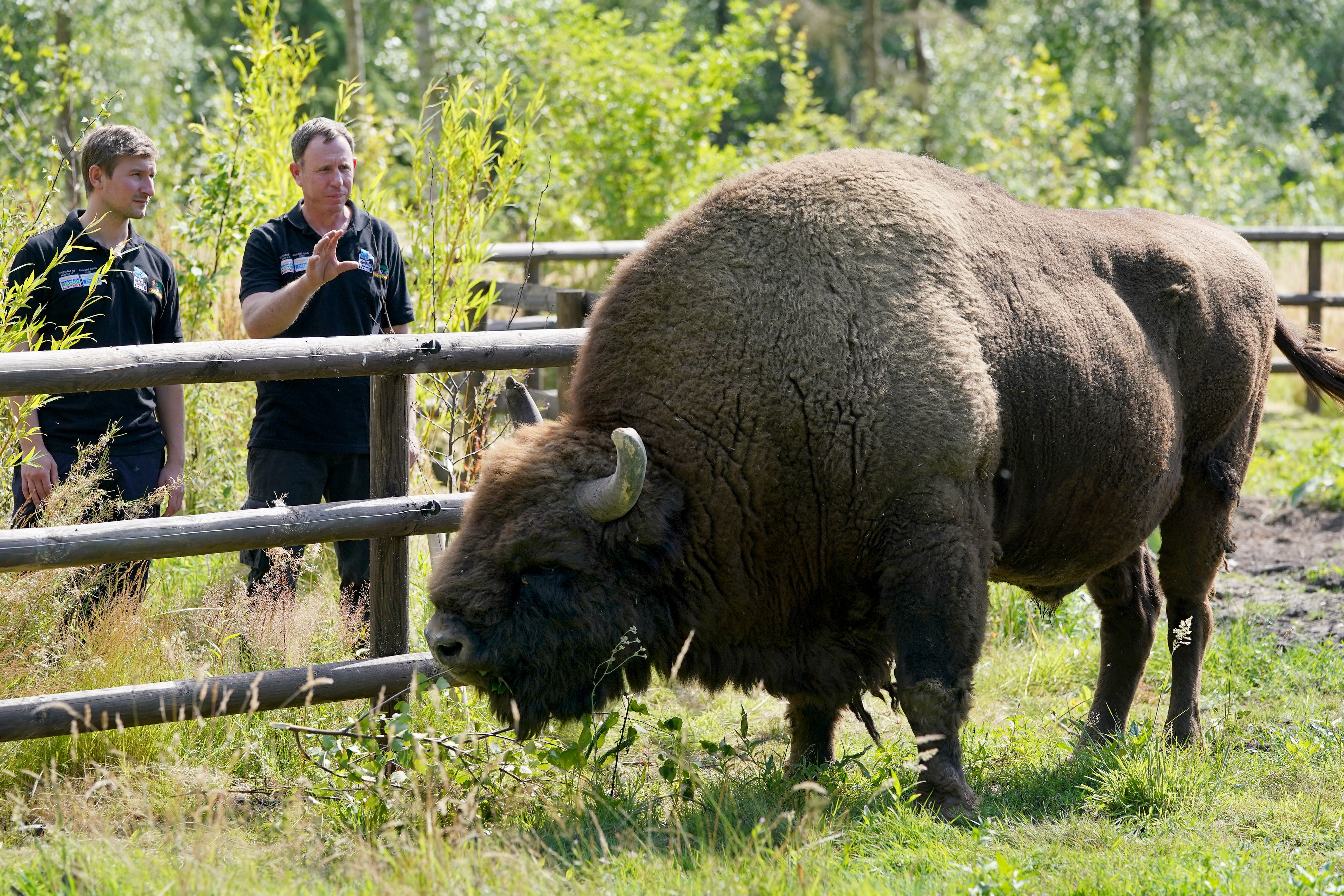Kent Wildlife Trust to receive £100,000 for bison rewilding project
The money will come from Rewilding Britain’s Rewilding Challenge Fund which rewards projects that ‘think big, act wild’.

Your support helps us to tell the story
From reproductive rights to climate change to Big Tech, The Independent is on the ground when the story is developing. Whether it's investigating the financials of Elon Musk's pro-Trump PAC or producing our latest documentary, 'The A Word', which shines a light on the American women fighting for reproductive rights, we know how important it is to parse out the facts from the messaging.
At such a critical moment in US history, we need reporters on the ground. Your donation allows us to keep sending journalists to speak to both sides of the story.
The Independent is trusted by Americans across the entire political spectrum. And unlike many other quality news outlets, we choose not to lock Americans out of our reporting and analysis with paywalls. We believe quality journalism should be available to everyone, paid for by those who can afford it.
Your support makes all the difference.Kent Wildlife Trust is to receive £100,000 to rewild tens of thousands of hectares of south-east England.
The funding is part of Rewilding Britain’s annual award and will go towards a project that is reintroducing bison, long-horn cattle, iron-age pigs and Exmoor ponies.
These animals are known as conservation grazers and are part of Kent Wildlife Trust’s plan to restore the ancient woodland of the Blean, near Canterbury, and beyond.
European bison have not lived wild in the UK for thousands of years and the species was almost hunted to extinction in the early 20th century across the continent.
They prefer woodland to the wide, open prairies commonly associated with their larger American counterparts, benefitting that environment by trampling down bracken and wallowing in sand pits which creates space for invertebrates.
We want this rewilding project to demonstrate the amazing things we can achieve for nature and people by rewilding at scale with partners in a phased approach
In September, rangers discovered that one of the bison had given birth to a calf after just a few months of being released into the woodland.
Sara King, rewilding manager at Rewilding Britain, said: “This exciting project is working at nature’s scale and allowing nature and natural processes to take the lead, while engaging with the local community and providing economic benefits through ecotourism.
“Our Challenge Fund asked applicants to ‘think big, act wild’, and Kent Wildlife Trust is doing just that!
“We’re delighted to be able to support the Trust as it scales up its rewilding ambitions within the Blean and hopefully beyond.”
Kent Wildlife Trust are also offering safaris through the Blean to show people the bison and educate visitors on their regenerative effects.
It has so far been a popular tourist destination, the Trust said, and they hope to continue growing the number of visitors with the new funding.
The Trust has recently been granted planning permission to build a set of tunnels to allow the bison to move underneath footpaths into other enclosures, giving them more space to roam.
Paul Hadaway, director of conservation at Kent Wildlife Trust, said: “We are very grateful to Rewilding Britain for its generous support in helping us take the next crucial step in our rewilding ambitions.
“We want this rewilding project to demonstrate the amazing things we can achieve for nature and people by rewilding at scale with partners in a phased approach.
“Wilder Blean started with the use of ecosystem engineers, the bison and other conservation grazers now living within the Blean complex, and will hopefully end with a large, connected landscape that works for both people and wildlife – the ultimate goal of rewilding.”